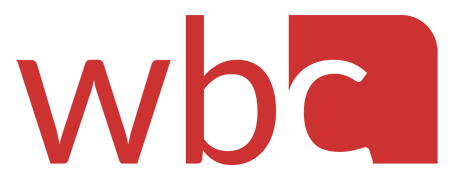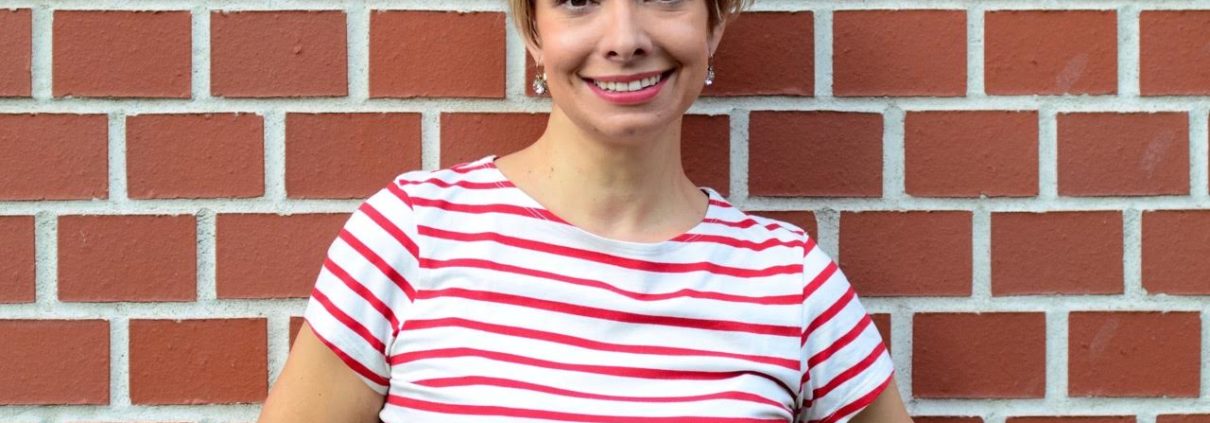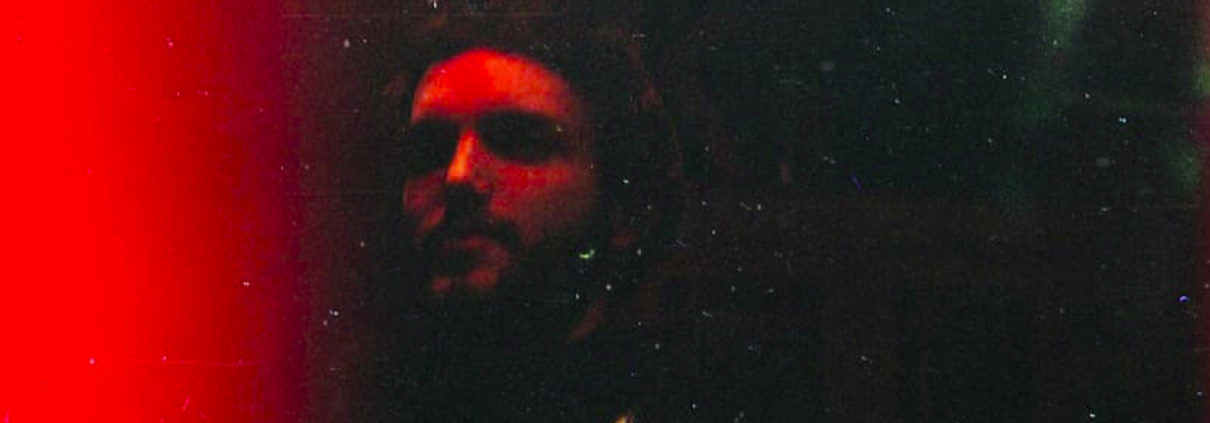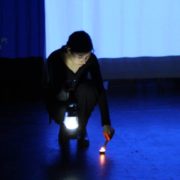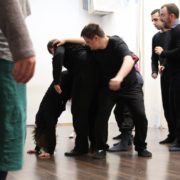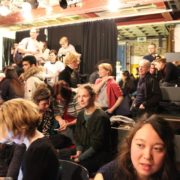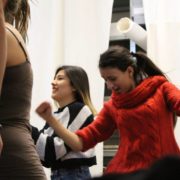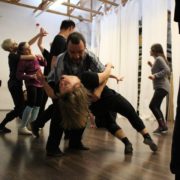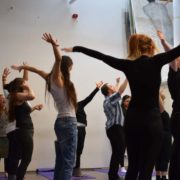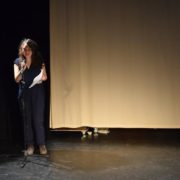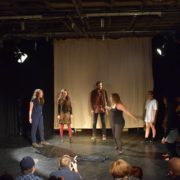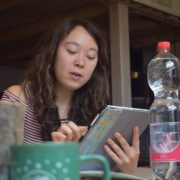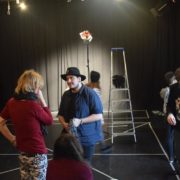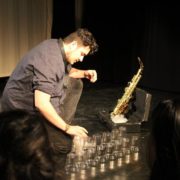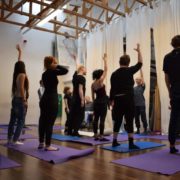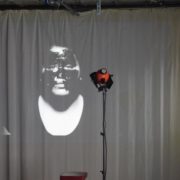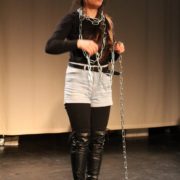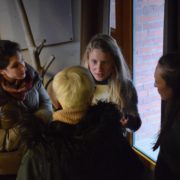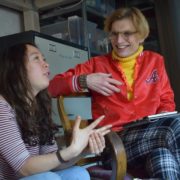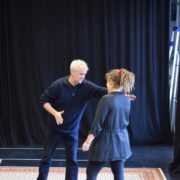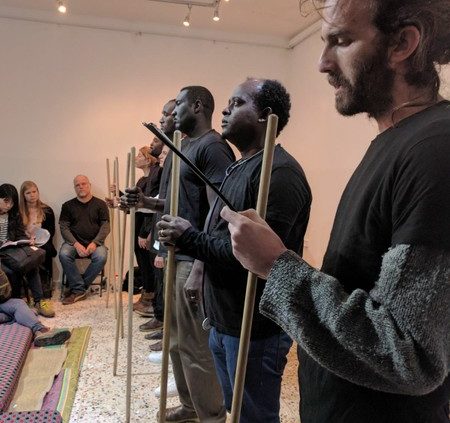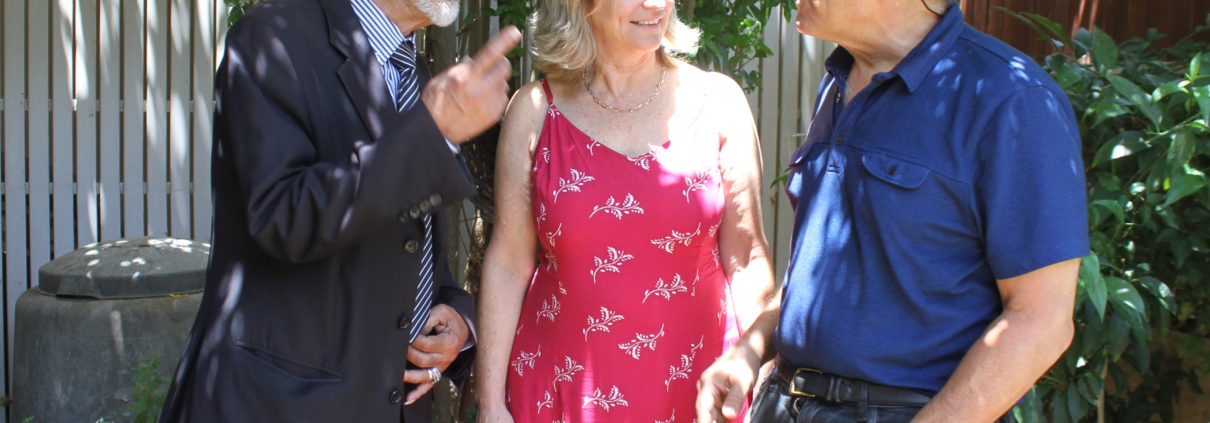“A place to meet on a value bases”
The neighborhood of Abu Tor straddling the seam between East and West Jerusalem is divided into two communities – Jewish and Palestinian. The two populations have minimal contact due to the political conflict and differences in culture and language. The “Good Neighbors – Abu Tor/Al-Thuri” Project, partner of the Willy Brandt Center, is a joint, unique initiative based on volunteers aiming to build a common community between Jews and Palestinians living on the seam.
Alisa Maeir-Epstein and her husband David are the spiritual parents of the project setting a unique example for a peaceful co-existence among neighbors. Together with their Palestinian counterpart, Abu Nijmhe, head of the residents’ committee of Palestinian Abu Tor, they shape neighborly relations and establish common projects to improve the neighborhood of Abu Tor.
For this newsletter Alisa talked to Katharina, head of the Social Arts Project, about the specific situation of Abu Tor, the birth of the project and its collaboration with the Willy Brandt Center.
Alisa, you are living for 12 years in Abu Tor, five minutes walk from the Willy Brandt Center. People coming to visit the WBC immediately feel the distinct vibe of this neighborhood. What makes it so special in your opinion?
Maybe special isn’t a good word. Because some of the characteristics of Abu Tor you have in other neighborhoods, but maybe the specific situation of Abu Tor is something you can describe as special.
And how would you describe the specific situation?
Some people say there are three Abu Tors. There’s the Jewish Abu Tor, there is the Palestinian Abu Tor, and there is the mixed Abu Tor, where there are Jewish and Palestinians. And this third Abu Tor probably refers to the people who are living along the seam, who have some relationships with Palestinians or have some relationships with Jews, and have been living here a longer time. So the seam area is a pregnant area for coexistence. And indeed, twenty years ago there were some coexistence efforts before the Intifada. But during the two Intifadas these existences broke down.
Now the second Intifada was in 2000, after many years of more or less an invisible wall running through your street separating the Jewish from the Palestinian neighbors. How did this project come into existence?
My husband David, was trained as social community worker. And since we moved here twelve years ago he said to me, “I really want to do something here in the neighborhood with Jews and Palestinians.” So I said “Ok”.
Now also because we live on the seam of the edge, all our neighbors on the other side of the road are Palestinian and we therefore have a lot of Palestinian friends. So David one day called a meeting of about twenty Palestinian men, because he was in touch with the men and asked them “What would you like to do to improve the neighborhood? And would you be interested to improving these things with the Jews?” And the answer all around was “Yes!”. So they started a steering committee to start thinking about things they wanted to do in the neighborhood.
That was the first stage for “Good Neighbors”.
Yes, and by now we have various projects running in Abu Tor, such as a women’s forum, Hebrew and Arabic language lessons, a community garden, a soccer team, a local sustainable economy, and community events.
Part of your activities are held at the Willy Brandt Center, yet our collaboration between “Good Neighbors” and the Willy Brandt Center goes far beyond offering space.
So as the coordinator on a volunteer basis of the project, a lot of my work I feel is educating the public, about the other side, about how we can work together, about seeing people as people, not stereotyping people, about putting aside fears, about possibility. So I think these are things that the WBC also holds as values close to their heart and I think because the project holds these values and WBC holds these values, it’s a place for us to meet on a based on these values.
Talking about values and working on relationships to shape the future, what is your vison for “Good Neighbors” and our collaboration for the upcoming years?
That’s a difficult one. Not because it’s five years from now, but because our project goal is to build an Israeli-Palestinian Center. So I would hope that it would be enriching for both factors and for the neighborhood. We would want to find some way that the two centers, our Neighborhood Center and the Willy Brandt Center, would work together. One representing the local people whether of the neighborhood or of the city or even the two countries, because we envision the center as being a place where groups of people from all over the area would come and learn about coexistence.
Upcoming:
The next big step in the collaboration between “Good Neighbors” and the Willly Brandt Center is a winter festival held on December 7th 2017 at the Willy Brandt Center as a community festival for all residents in Abu Tor.
Follow us on Facebook to stay updated on our work.
